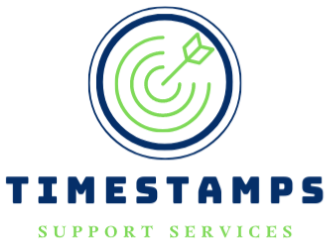Helping kids ask questions might seem simple, but for children with autism, it can be a big leap in communication. Timestamps Support Services offers ABA therapy in St. Augustine, FL, that focuses on breaking this skill into small, achievable steps.
Therapists use tailored strategies that make learning natural and rewarding, helping children build confidence without unnecessary frustration. Asking the right question at the right time transforms how a child connects with the world. It’s not just about language; it’s about empowering them to problem-solve and participate in everyday moments.
With the right guidance and patience, these skills can impact their ability to communicate clearly and meaningfully. Read on to learn more.
Breaking Questions into Smaller Steps
ABA therapy in St. Augustine, FL, focuses on helping children learn skills by breaking them into smaller, easier steps. Therapists use task analysis to guide the process when teaching how to ask a question. They teach children to first get someone’s attention by saying their name or tapping on their shoulder.
Therapists also help children learn to pause and wait for a response after asking the question. This part of the process is important for understanding social cues and communication. By following these steps, children can develop the confidence and skills to ask questions on their own.
Using Reinforcement to Solidify Skills
Positive reinforcement is a powerful way to help children build and improve skills. It works by encouraging desired behaviors by rewarding them right away. When a child is rewarded for doing something correctly, they are more likely to repeat that behavior and continue to improve.
Rewards can be anything the child enjoys, like a favorite toy, extra playtime, or a big smile and kind words. This method makes learning fun and keeps children excited to practice new skills.
ABA therapy uses positive reinforcement as a key part of its approach. It helps children learn behaviors and skills in a safe and supportive environment.
Building Contextual Awareness
Applied Behavior Analysis (ABA) therapy helps children build contextual awareness by connecting questions with daily situations. Therapists use role-playing and guided practice to help children understand when and how to ask questions, like asking “Where is the toy?” during a play session.
This approach helps children link their questions to the specific challenges or goals they face, making their communication more meaningful and effective. Over time, children practice these skills in real-world scenarios until they can apply them independently.
We Offer ABA Therapy in St. Augustine, FL
Timestamps Support Services specializes in ABA therapy in St. Augustine, FL. Our team of highly trained and experienced therapists is dedicated to helping children reach their full potential. Contact us now to learn more about the services we provide.
Key Takeaways
How does ABA therapy help children develop question-asking skills?
ABA therapy breaks down the process into small, manageable steps, like getting someone’s attention and pausing for a response. This method builds confidence and makes learning communication skills easier for children.
What role does positive reinforcement play in teaching children to ask questions?
Positive reinforcement rewards children immediately for their successes, encouraging them to repeat those behaviors. It helps make learning enjoyable and motivates continual improvement.
How does ABA therapy connect question-asking skills to real-life situations?
Therapists use role-playing and guided practice to teach children when and how to ask questions in everyday scenarios. Over time, children learn to apply these skills independently, improving their communication in meaningful ways.

